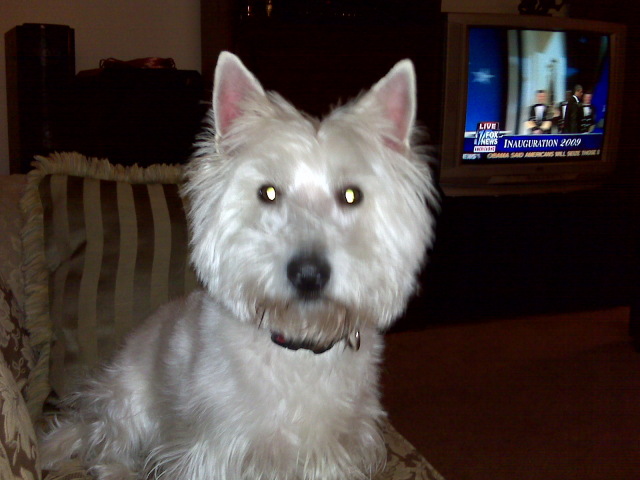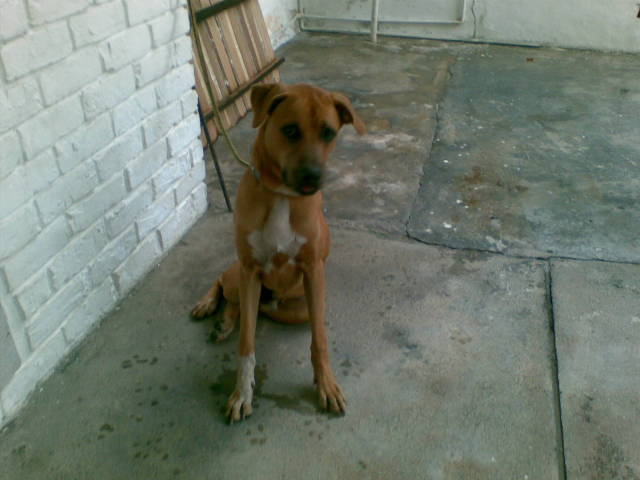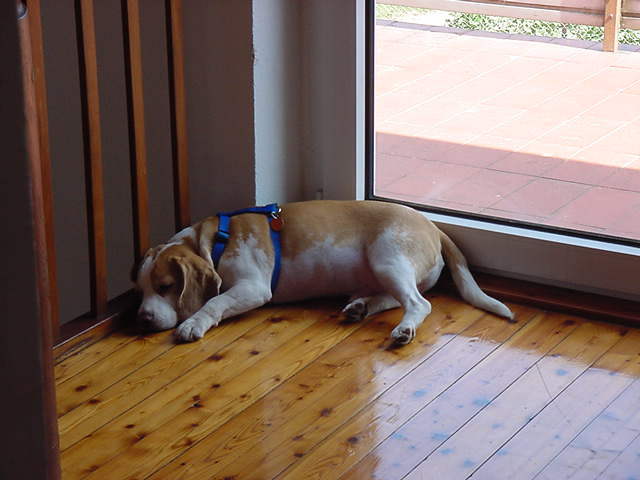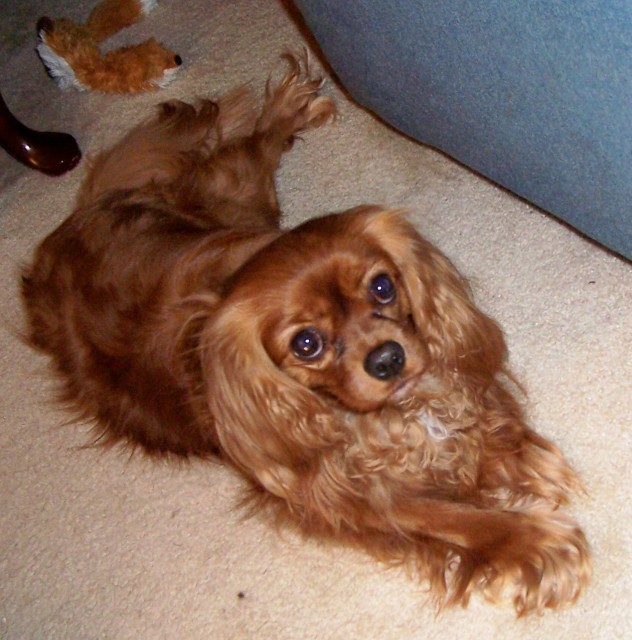QuestionWe have a 5 year old wheathen terrier(Buster)who has always been very fearful and nervous. My husband got him at a local non professional breeder when he was about 15 weeks old. When we got him we had a 9 year old SCWT(Jake)with a great and friendly personality. Buster would hide and bark from afar whenever he was scared (anytime someone new came into the house or with loud unfamiliar noises) A few weeks after Jake passed away, he bit a man who walked very close to him while he was eliminating. It was not an attacking repeating bite, but rather a nip and retreat. I assumed that he got very scared and hoped that it would not occur again. Last week, 4 months later, he bit my friend (who he knows) because she was trying to pull him out of the room while I was shamppoing the rug, as she knew the noise from the machine made him really nervous. Later on the week he showed his teeth and barked at another well known friend who came into the house unannounced. I had told her about the other incidents so she did not approach him but reatreated instead. I am very concerned. Of course my first priority is that nobody gets hurt, and I am also afreaid of loosing him. I am taking precautions such as never walking him close to any person, and putting him in another room when stranger come in. Is there anything that I can do to train him not to react that way? behaviour therapy or anti anxiety medication? Can you recommend a doctor in South Florida that can help us? He is a very sweet dog when not scared and friendly to other animals.
Answer"Nip and retreat" is the classic fear bite (almost all dog to human aggression is fear based.) Your friend had NO BUSINESS interacting with that dog in that manner; it essentially set the dog up for a bite. THIS IS NOT SOMETHING THAT SHOULD BE REPEATED. Every time a dog uses aggression it learns more about how aggression works: perfect example is the dog's then response to a friend who entered unannounced in close proximity to the event with the friend who dragged him out of the room.
This dog must be protected from ALL visitors. He simply can't be allowed to interact with anyone other than those with whom he lives until he has been evaluated by a professional. The Wheaten is a puppy mill "product" because of its popularity; casual breeding (or breeding in abusive environments where the dogs are basically used as objects) does not include careful evaluation of temperament OR type. Your dog may have inherited fear issues and most likely was (at best) neglected by his "breeder" (as were all the puppies, most likely). Unfortunately, addressing this fear and its related aggression really should have been done a long time ago.
First stop: comprehensive physical evaluation to rule out any disease or physical cause (orthopedic, neurological, etc.) and for this you need a sophisticated veterinarian. (BY the way: who has been grooming this dog???? If you have used (or are using) a professional groomer, I'd take a very close LOOK at what's going on there). You might start with a veterinary behaviorist but I would not rely upon this for overall assessment since the dog needs to be seen in his own environment, not in a strictly clinical setting. DO NOT PUT THIS DOG ON ANY MEDICATION such as "doggy prozac", Clomicalm, or any agent that reduces inhibition or his aggression will rapidly escalate.
A certified applied animal behaviorist (especially one with a great deal of experience with aggression) needs to evaluate your dog on your property. Following the dog's full physical evaluation, you can find such a professional at one of the following sites. Unfortunately, I can't refer you to anyone specifically in your area.
http://certifiedanimalbehaviorist.com/page6.html
http://www.animalbehavior.org/ABSAppliedBehavior/caab-directory
Meanwhile: refrain from walking this dog in populated areas; do not leave him unattended in the yard; confine him to safe room (with door securely locked) when visitors or tradespeople are expected (or show up unexpectedly). Do not test him further; do NOT "warn" anyone about him, since the body language of such humans will increase his fear of them. If it's necessary to bring the dog into heavily populated areas (such as the veterinary clinic), use a basket muzzle (NOT a velcro muzzle). Refrain from attempting to console, comfort or in any way change the dog's reaction since touch can be construed as reward. If he's wearing the muzzle (ONLY when absolutely necessary, not randomly), he can't inflict any injury.

 Companion for Lonley Westie
Question
Shannon
We have a 5-year-old neutered Westie w
Companion for Lonley Westie
Question
Shannon
We have a 5-year-old neutered Westie w
 dogs behaviour
QuestionMy 8 months old Dusto
QUESTION: My puppy
dogs behaviour
QuestionMy 8 months old Dusto
QUESTION: My puppy
 licking the floor not stop
QuestionGeorgie
QUESTION: Hi,
I have a 7 year ol
licking the floor not stop
QuestionGeorgie
QUESTION: Hi,
I have a 7 year ol
 Dog light and shadow chasing
Question
Jenni
My 3 year old Cavalier King Charles Span
Dog light and shadow chasing
Question
Jenni
My 3 year old Cavalier King Charles Span
 Agressive 1 yr old mini goldendoodle
Question
our millie
My husband and I got our min
Agressive 1 yr old mini goldendoodle
Question
our millie
My husband and I got our min